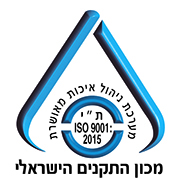Moving to Israel is exciting, yet the process is quite laborious and you might find yourself hitting a wall here and there.
Companies that attempt to independently issue a work visa in Israel, face many challenges that significantly delay and
even terminate the process completely.
We have been contacted numerous times by companies that have tried to submit applications for experts on their own to the Ministry of Economy
and Industry in Israel, and faced complicated obstacles that we were able to help them overcome. Here are a few important factors to consider,
and guide you along the process:
How Long Will the Process Really Take?
In Israel, projects don’t usually begin or end on time. Many foreign companies incorrectly estimate a specific duration of time
for the approval process for a B1 work visa. It’s important to take in account that a big buffer is required for bureaucratic setbacks
and additional forms, visas, and clearances such as:
- Building permits
- Equipment that gets stuck in customs and is not released on time
- Residence visa
- Police clearance
- Medical clearance
We recommend to submit the expert application according to a logical estimation of how long the process will take, and not pursuant to the signed contract.
This will avoid the hassle and additional delay of applying for a permit extension, as contracts are easier to extend than permits.
90 Days to Arrive in Israel
Once the permit is approved, the expert employee must arrive in Israel within 90 days.
One company turned to us with a valid permit, perplexed as to why the Ministry of Interior refuses to re approve the employee’s visa in Israel.
We managed to solve this by submitting a new expert application, we renewed the permit, and the visa.
Submit EVERYTHING
If you plan to relocate, know that the paperwork is abundant, being careful and accurate will prevent a lot of headaches down the road, and save a great deal of time.
The Israeli policy on the matter of working permits for expert employees is to process each application individually. Failing to submit the slightest detail
can create problems in the procedure. The Ministry of Economy and Industry are extremely meticulous, so make a do-not-forget list
and take the following points into account:
- ALL the necessary forms have to be submitted correctly
- Make sure that forms in foreign languages have been translated into English or Hebrew
- There are new regulations distinguishing different criteria between academic and non-academic experts
Non-Academic Experts Should Know:
- Experts whose line of work does not require academic degree are obligated to open a bank account in Israel.
- The company must use this bank account to deposit the employees’ salary.
- Employee Affidavit must be provided at the bank stating that the account has no partners or powers of attorney.
Submitting a Application for a New Expert Permit
Applying for a new permit (not an extension) is regulated by the committee authorized to the specific area of the expertise.
The committee examines the project and approves the permit, so it is necessary to emphasize to them why this specific employee is needed for the job.
Keep in mind that projects are prioritized nationally, and their regulations can change and accelerate the process.
It’s recommended to consult with a lawyer or an international relocation management company that specializes relocation services specifically in this field,
and has regular updates from the committee.
Relocation to Israel: A Pleasant Journey
Relocating to Israel doesn’t have to be a hassle. With the right assistance, you won’t need to worry about how to get a work visa in Israel or how to overcome
obstacles along the way. Local Port understands every aspect of this process and has the experience and knowledge to take care of the complicated manners
in order to make relocation a pleasant journey.






